The views expressed in our content reflect individual perspectives and do not represent the authoritative views of the Baha'i Faith.
From time immemorial, rape has been regarded as spoils of war. Now it will be considered a war crime. We want to send out a strong message that rape is no longer a war trophy. – Judge Navanethem Pillay, the International Criminal Tribunal for Rwanda, 1998.
Men who are conditioned to respect the female virtues of growth and the sacredness of life do not violate women. – Peggy Reeves Sanday, the University of Pennsylvania
In 1999, when the Serbian Army invaded Kosovo and began its scorched-earth campaign of genocide against the Kosovar Muslims, soldiers used mass rape as a weapon of war. In that culture, a culturally Muslim woman who had any kind of sexual contact with a Serb—whether consensual or forced—was often ostracized from her family and her society. The woman’s entire family, humiliated by such psychological warfare, faced social isolation and stigma. Because the norms of the Balkan region said that children inherited their ethnicity from the father, rape and impregnation meant that Muslims would be “replaced” in one generation by Serbian children. The Serbs knew this, of course, and so used systemic rape along with the mass killing of men and boys to try to destroy an entire ethnic group.
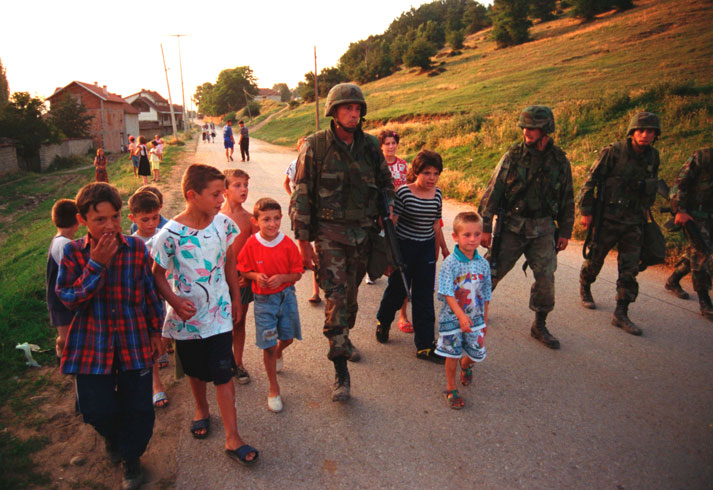
US Marines escort Albanian children during Kosovo war
I was there, helping to treat refugees, during that war and the NATO bombing that eventually ended it. With a large group of physicians, we tried to help heal the survivors—but we found it almost impossible to help the girls and women we met who had been victimized by the genocidal campaign of war rape. Their shame, fear and trauma, combined with the cultural forces in the region, made even acknowledging the crimes committed against them a virtual impossibility. We tried everything we could think of to counsel and assist those women, but we only succeeded with a few of them. The rest retreated into deep denial and depression. Many committed suicide.
Before that horrifying experience, I only had a vague understanding of the terrible trauma of rape. I knew women who had been raped—probably everyone does, whether they realize it or not. But I didn’t fully comprehend the long-term impact such a violent and demeaning act can have on a woman’s psyche, spirit and sense of self-worth. I learned that the violation of rape goes far beyond a “sex crime,” as we currently understand it. Instead, it reduces the victim to an object of contempt, takes away any autonomy or personal agency, and strikes at the very root of a woman’s identity. Rape is torture. For the victim, that torture can continue across an entire lifetime.
Ending wars, genocide and ethnic cleansing will help stop these crimes against women and against humanity, and the Baha’i teachings have serious prescriptions for accomplishing that peaceful goal. But ending rape will take an equally serious effort, starting with the individual character of each man and extending toward the full equality of the sexes in every culture on Earth.
Obviously, all civilized societies have laws against rape. Those laws don’t always prevent rape, but they do have some deterrent impact on potential rapists, and bring about justice in a small number of cases. Unfortunately, though, the vast majority of rapes are never reported, and rapists are rarely convicted. In Italy, for example, more than 9 out of 10 women did not report being raped. In the United Kingdom, convictions in rape cases in 2002 stood at a mere 5.6%. In the United States, the FBI estimates that only five percent of all rapists will ever spend a day in jail.
In fact, across many of the world’s cultures, rape still carries an enormous stigma and dire consequences for the victim rather than the victimizer. When a woman is raped, in several countries she is expected and forced to marry the rapist. Since abortion is illegal in so many places, she is also expected to carry the rapist’s child to term, and to care for it as her own afterwards. These legal and societal expectations only perpetuate her trauma, create new suffering and legitimizing rape.
From a Baha’i perspective, backwards laws, customs and religious proscriptions regarding rape need to be overturned and replaced with a comprehensive set of responses that empower and empathize with victims and prevent further crimes by perpetrators. Unlike many other cultures and belief systems, the Baha’i Faith encourages rape victims to make their own carefully thought-out decisions:
One of the most heinous of sexual offences is the crime of rape. When a believer is a victim, she is entitled to the loving aid and support of the members of her community, and she is free to initiate action against the perpetrator under the law of the land should she wish to do so. If she becomes pregnant as a consequence of this assault, no pressure should be brought upon her by the Baha’i institutions to marry. As to whether she should continue or terminate the pregnancy, it is for her to decide on the course of action she should follow, taking into consideration medical and other relevant factors, and in the light of the Baha’i Teachings. If she gives birth to a child as a result of the rape, it is left to her discretion whether to seek financial support for the maintenance of the child from the father; however, his claim to any parental rights would, under Baha’i law, be called into question, in view of the circumstances. – Statement on Violence against Women and Sexual Abuse, the Universal House of Justice, January 24, 1993.
Here’s the good news about this very dark subject: in many developed countries, rape is declining. The United States, for instance, has experienced a decline in reported rapes of more than 50% since 1993.
Why? Experts say the decline in rape can be directly correlated with a rise in gender equality. One recent analysis of 109 U.S. cities found that the long-term effect of gender equality reduces rape and creates an improved social climate toward women. When women have more power, several independent studies have concluded, rape declines. That’s just one of the reasons the Baha’i teachings recommend giving women their freedom, their independence and their power:
…there must be equality of the rights of women and men …righteousness and justice must prevail, and …there must be education and freedom for all the sons and daughters of mother earth. – Abdu’l-Baha, Star of the West, Volume 6, pp. 315-316.
Divine Justice demands that the rights of both sexes should be equally respected since neither is superior to the other in the eyes of Heaven. Dignity before God depends, not on sex, but on purity and luminosity of heart. Human virtues belong equally to all! – Abdu’l-Baha, Paris Talks, p. 161.
You May Also Like
Comments



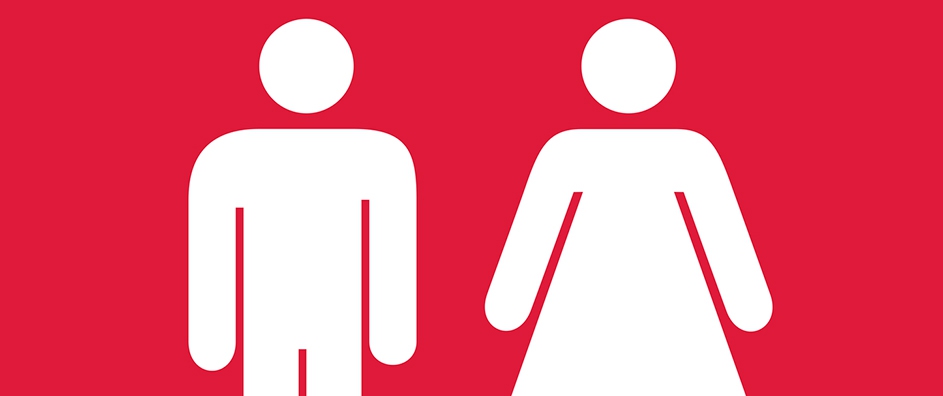

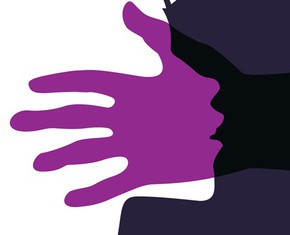
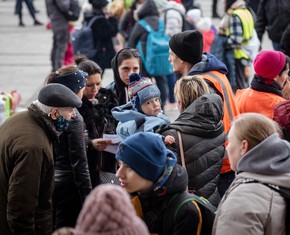

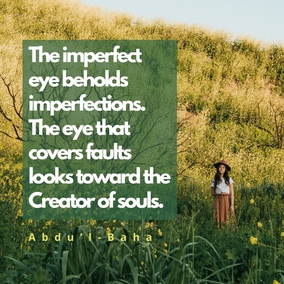
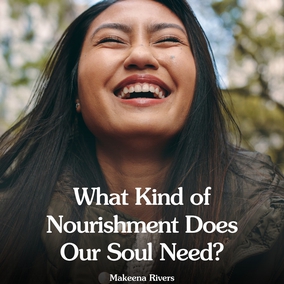







outrageous set of factors that encouraged the violation of women
and basically sealed their social fate
after the event! That rape was used
as a calculated tool in ethnic cleansing had to make it a crime
against humanity as a whole. It
is also hard to imagine, though it's
true, that the conviction rates you
mentioned are really that low! We
should be ashamed of ourselves for
that!